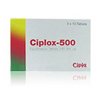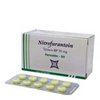INDICATIONS
Keflex is used for treating certain bacterial infections. Keflex is a cephalosporin antibiotic. It works by interfering with the bacteria's cell wall formation. This weakens the cell wall, causing it to rupture, and kills the bacteria.
INSTRUCTIONS
Use Keflex as directed by your doctor.
- Take Keflex by mouth with or without food.
- To clear up your infection completely, take Keflex for the full course of treatment. Keep taking it even if you feel better in a few days.
- If you miss a dose of Keflex, take it as soon as possible. If it is almost time for your next dose, skip the missed dose and go back to your regular dosing schedule. Do not take 2 doses at once.
Ask your health care provider any questions you may have about how to use Keflex.
STORAGE
Store Keflex at 77 degrees F (25 degrees C). Brief storage at temperatures between 59 and 86 degrees F (15 and 30 degrees C) is permitted. Store away from heat, moisture, and light. Do not store in the bathroom. Keep Keflex out of the reach of children and away from pets.
MORE INFO:
Active Ingredient: Cephalexin.







